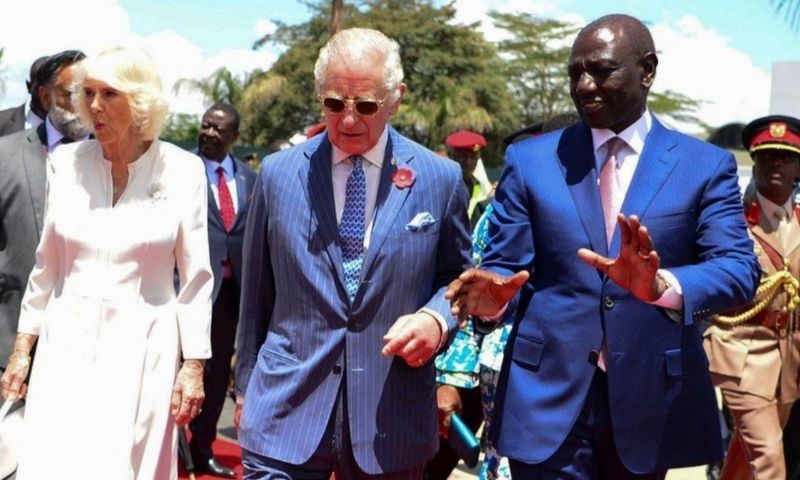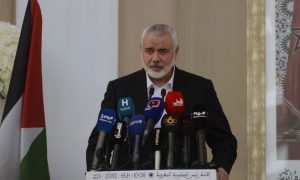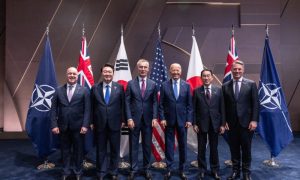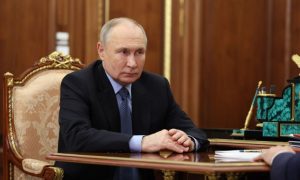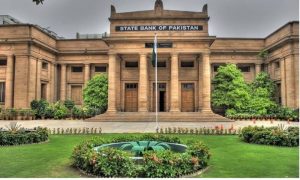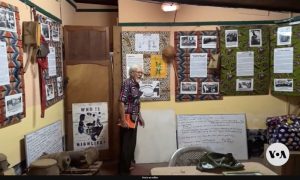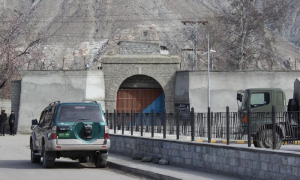NAIROBI, Kenya: In a pivotal visit to Kenya, King Charles III acknowledged the dark history of British colonial rule, expressing remorse for the “abhorrent and unjustifiable acts of violence” committed against Kenyans during their struggle for independence.
However, he did not issue the formal apology demanded by some in the East African nation.
At a state banquet hosted by Kenyan President William Ruto, King Charles emphasized that there could be “no excuse” for the historical atrocities, underlining the painful journey toward independence and sovereignty that Kenyans endured.
While this four-day state visit was touted as an opportunity to focus on the future and strengthen the friendly relations between London and Nairobi, Buckingham Palace had indicated that the king would address past “wrongs” committed during decades of colonial rule.
King Charles’s visit marks his first tour of an African and Commonwealth nation since ascending the throne, and it coincides with Kenya’s upcoming 60th anniversary of independence in December.
Under overcast skies, the royal couple, King Charles and Queen Camilla, received a ceremonial red carpet welcome from President Ruto. They paid their respects at the Tomb of the Unknown Warrior in the Uhuru Gardens memorial park, a site deeply rooted in Kenya’s history. It was here that independence was declared at midnight on December 12, 1963, marked by the lowering of the Union flag and the raising of Kenya’s flag.
Yet, the gardens stand on ground with a somber past, having served as a detention camp for suspected Mau Mau guerrillas during the violent 1952-1960 uprising. The so-called “Emergency” period was one of the bloodiest chapters of the British empire’s history, resulting in the deaths of at least 10,000 people, primarily from the Kikuyu tribe, with tens of thousands more detained without trial, where reports of executions, torture, and brutal beatings were widespread.
King Charles acknowledged the “wrongdoings of the past” with deep regret and expressed his intention to meet those who suffered from colonial abuses. He emphasized that while the past cannot be changed, addressing history with honesty and openness can strengthen the bonds of friendship today and build a closer relationship for the years ahead.
President Ruto characterized the colonial response to Kenyans’ quest for self-rule as “monstrous in its cruelty” and commended King Charles for his willingness to shed light on uncomfortable truths.
Despite the recognition of past wrongs, the formal apology sought by some in Kenya was not delivered. The Kenya Human Rights Commission had urged King Charles to issue an “unequivocal public apology” and provide reparations for colonial-era abuses. In 2013, Britain agreed to compensate over 5,000 Kenyans who had suffered abuse during the Mau Mau revolt, though it fell short of a full apology.
While opinions on the matter vary, some, like delivery rider Simson Mwangi, believe that a formal apology is necessary to begin the healing process, as the negative impacts of colonization persist.
However, chef Maureen Nkatha feels it’s time to move forward, emphasizing the importance of progress.
This visit holds special significance for King Charles, who mentioned the profound connection that his family has with Kenya. It’s a place of great personal meaning, where Queen Elizabeth II learned of the death of her father, King George VI, in 1952, marking the beginning of her historic 70-year reign.
The royal program during this visit centers on efforts to combat climate change, support for creative arts, technology, and youth, reflecting King Charles’s longstanding advocacy for environmental protection.
Following their stay in the capital, the royal couple will head to Mombasa, where they will visit a marine nature reserve and engage with religious leaders, further strengthening the ties between Kenya and Britain.









